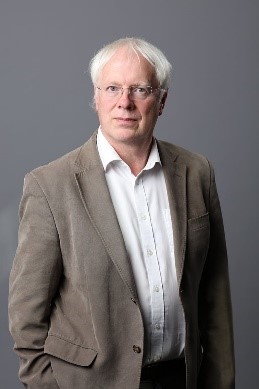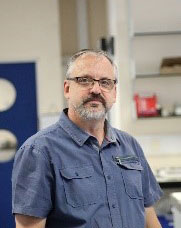- ecolefins@certh.gr
- 6th km Charilaou-Thermi Rd, Thessaloniki, Greece
University of St Andrews
University of St Andrews (USTAN)
The University of St Andrews (USTAN) is a public university in St Andrews, Fife, Scotland and was founded in the 15th century, making it the oldest of the four ancient universities of Scotland and the third-oldest university in the United Kingdom and English-speaking world. It was recently judged to be the best University in the UK according to The Times and Guardian University Guides for 2024. The University of St Andrews is world-leading, with a responsibility to integrate sustainability within the University strategy, from climate science and sustainable development to energy ethics and grass-roots level action across all our communities. The University has set an ambitious target of carbon net zero by 2035 and has a strong commitment to clean energy.
The School of Chemistry at St Andrews is recognised as one of the leading chemistry departments in the UK, being also ranked 1st in the UK in the Guardian University Guide 2024. Scientific research in Professor Irvine’s group- the key solid state materials group here- strongly focuses upon new generation and storage technologies. The group has a very high international research profile, with a team of over 50 researchers working in various areas and possesses excellent facilities for such research. The group has the expertise and proven track record in developing and characterising new materials, including the recent discovery of nanocatalyst ex-solution materials (Emergent Nanomaterials, UK, EPSRC EP/R023522/1), integrating these new materials into devices and testing them. In the group there are a vast range of skills, covering chemistry, physics and engineering, with people with both academic background and industrial experience. The links to top research groups from all over the world as well as strong connection to industrial partners offer a two way flow of people and ideas, giving a strong collaboration and practical base to the group.
USTAN will provide over 30 years of experience in materials for Solid Oxide Fuel and Electrolysis Cells, including synthesis, processing and complete cell fabrication as well as structural and electrochemical characterization. USTAN will focus in the OLEFINS project on the synthesis, characterization and testing of co-ionic electrolytes, H2O and CO2 electrode materials as well as suitable, performant electrocatalysts and interfaces. We will take care of ex-solution strategies for enhancing the electrocatalytic properties developed electrode structures. Moreover, USTAN will produce, integrating the materials developed within this project and characterize the ci-EMR tubular single cells in their testing facilities.

Prof. John T.S. Irvine
Professor of Chemistry
Prof. John Irvine FRSE (male) has made a unique and world-leading contribution to the science of energy materials, especially in fuel cell and energy conversion technologies. This research has ranged from detailed fundamental to strategic and applied science and has had major impact across academia, industry and government. The quality and impact of Irvine’s research has been recognised by a number of national and international awards. Irvine has over 500 publications and has an WoS h-index of 70. He has a strong international standing having held senior visiting appointments in the US, Australia and China. Irvine was elected as a fellow of the Electrochemical Society in 2020 and is a European Councillor of the International Society for Solid State Ionics. He has led two EU research training networks, 1 ESF programme and 1 EU project. He has won 3 EPSRC platform grants, led the Delivery of Sustainable Hydrogen Supergen project, an EPSRC programme/network on energy materials and currently leads the NEXGENNA sodium-ion battery project. Irvine is Editor in Chief of the new open access IOP journal – Journal of Physics Energy.
Dr. Cristian Savaniu
Senior Research Fellow
Dr. Cristian-Daniel Savaniu (Male, Materials scientist) is currently a Senior Research Fellow in Prof. Irvine’s at the University of St Andrews. His interest activities are focussing on development of new materials and concepts in the field of energy materials, hydrogen technologies, biomass valorisation and catalysis. His work focusses on synthesis, processing and characterisation of active materials for solid oxide cell and batteries such as proton and ionic conducting SOC electrolytes, solid electrolytes for solid state sodium metal batteries, low temperature electrocatalysis and perovskite-based fuel electrodes. His work has been published in 37 refereed papers in international journals and he has 3 granted patents. He has been a PI and Co-I in several UK and European projects.

